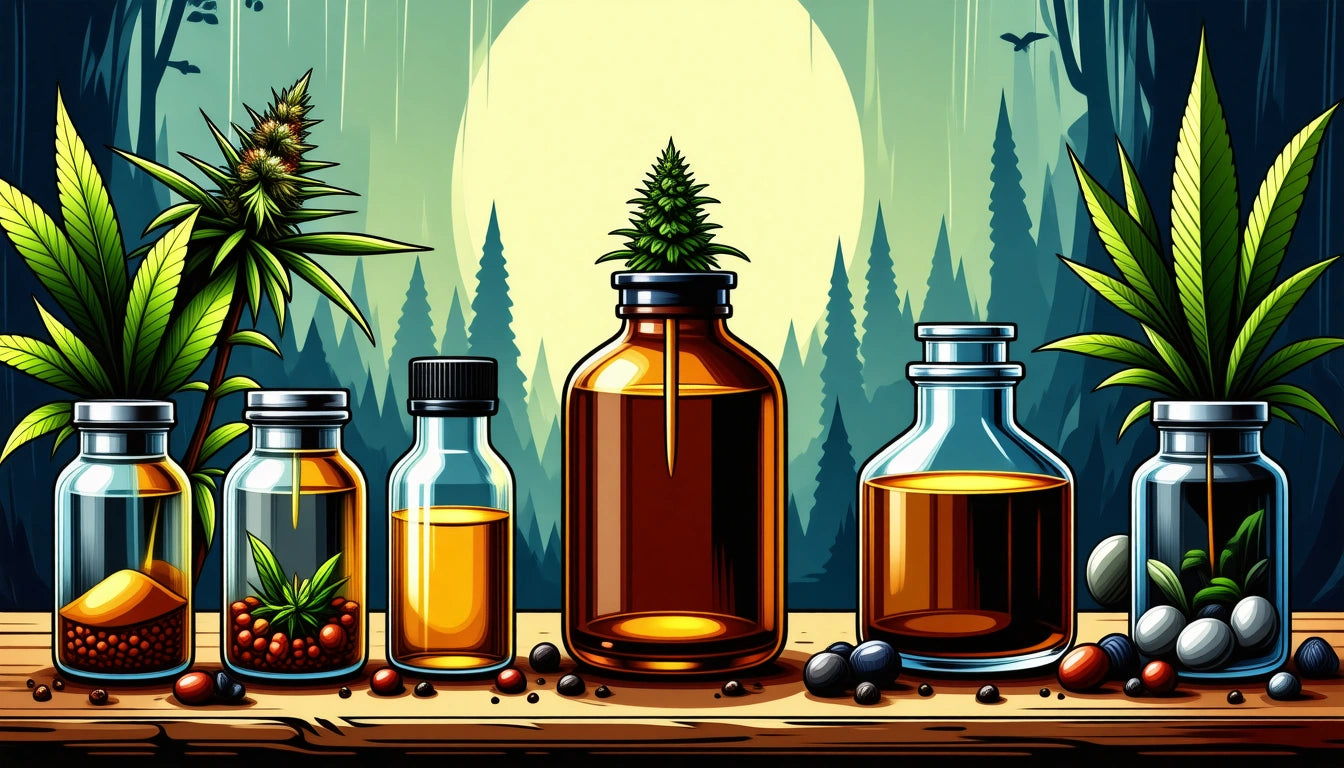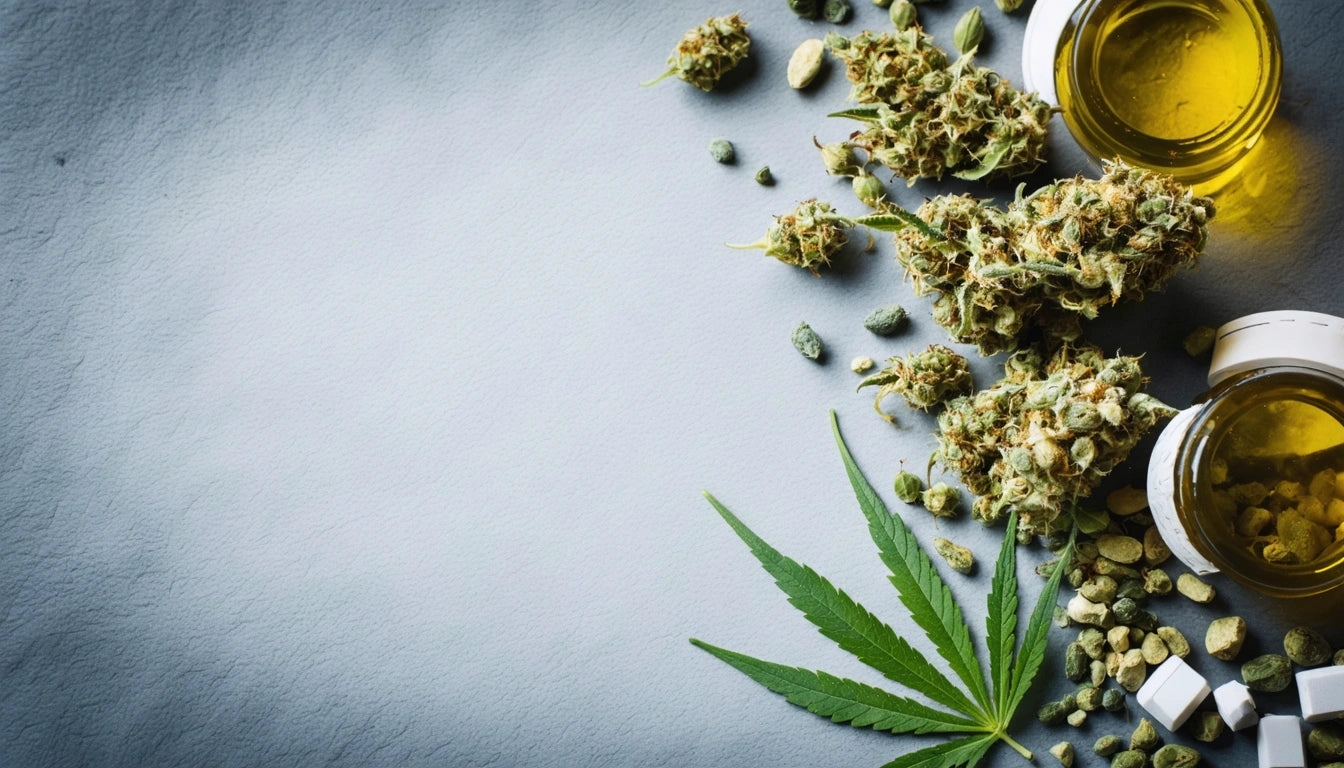Table of Contents
- Raw Cannabis: Can You Get High If You Eat Weed?
- The Science of Decarboxylation: Why Raw Cannabis Won't Get You High
- Edibles vs. Raw Cannabis: Understanding the Difference
- Factors Affecting Your Cannabis High
- Common Myths and Facts About Cannabis Consumption
- Best Practices for Responsible Cannabis Consumption
Can You Get High from Eating Weed? Exploring the Effects of Consuming Cannabis
Cannabis consumption methods continue to evolve and diversify, leading many to wonder about the effects of different intake methods. One common question that arises is whether you can get high from eating raw cannabis. This comprehensive guide explores the science behind cannabis consumption and answers the burning question: can you eat weed and get high?
Raw Cannabis: Can You Get High If You Eat Weed?
The short answer is no, eating raw cannabis will not get you high in the traditional sense. Raw cannabis flower contains THCA (tetrahydrocannabinolic acid), which is the non-psychoactive precursor to THC (tetrahydrocannabinol), the compound responsible for the psychoactive effects associated with cannabis.
While consuming raw cannabis may offer certain nutritional benefits due to cannabinoids, terpenes, flavonoids, and other plant compounds, it will not produce the intoxicating effects that many associate with cannabis consumption. This is why if you eat weed bud directly from the plant, you won't experience a high.
The Science of Decarboxylation: Why Raw Cannabis Won't Get You High
For cannabis to produce psychoactive effects, it must undergo a process called decarboxylation. This chemical reaction removes a carboxyl group from THCA and converts it to THC, the compound that interacts with the endocannabinoid system to produce the characteristic high.
Decarboxylation typically occurs when cannabis is exposed to heat, such as when:
- Smoking or vaporizing cannabis
- Baking or cooking cannabis for edibles
- Extracting cannabinoids using heat-based methods
Without this crucial heating process, raw cannabis contains minimal active THC, which explains why eating raw weed doesn't get you high. For those interested in precise measurements when preparing cannabis products, accurate digital scales can help ensure proper dosing for decarboxylation and infusion processes.
Highlight: Raw cannabis contains THCA, not THC. Without decarboxylation (heating), THCA cannot produce psychoactive effects, which is why eating raw cannabis won't get you high.
Edibles vs. Raw Cannabis: Understanding the Difference
Cannabis edibles produce strong psychoactive effects because they contain decarboxylated cannabis. During the preparation of edibles, cannabis is typically heated in a fat source (like butter or oil), which converts THCA to THC. This THC-infused fat is then used in cooking or baking.
When you consume properly prepared edibles, the THC is metabolized by the liver, converting it to 11-hydroxy-THC, which is more potent and longer-lasting than inhaled THC. This explains why edibles often produce stronger effects than smoking or vaping.
In contrast, if you eat weed in its raw form, you're consuming primarily THCA, which won't produce these effects. This fundamental difference explains why properly prepared cannabis edibles get you high, but raw cannabis does not.
Metabolism and Absorption
The way cannabis is metabolized differs significantly based on consumption method:
- Inhalation (smoking/vaping): THC enters the bloodstream through the lungs and reaches the brain quickly
- Edibles: THC is metabolized by the liver, creating 11-hydroxy-THC
- Raw cannabis: THCA is poorly absorbed and not converted to psychoactive compounds
Factors Affecting Your Cannabis High
Several factors influence how cannabis affects you, regardless of consumption method:
Tolerance and Frequency
Regular cannabis users develop tolerance, requiring more to achieve the same effects. Taking breaks from cannabis can reset tolerance levels, potentially making subsequent experiences more intense.
Consumption with Food
Many wonder if eating makes your high go away or diminishes its effects. Food can indeed impact your cannabis experience:
- Eating before smoking may slightly reduce the intensity of effects
- Consuming food after getting high might seem to diminish the high due to distraction and blood flow redirection to the digestive system
- For edibles, consuming with fatty foods may actually increase absorption and potency
Common Myths and Facts About Cannabis Consumption
Let's address some common misconceptions about cannabis consumption:
Myth: Eating Raw Weed Gets You Higher
Some believe that eating raw cannabis produces stronger effects than smoking. This is false. Without decarboxylation, raw cannabis contains minimal active THC and won't produce psychoactive effects.
Fact: Different Consumption Methods Produce Different Effects
The way you consume cannabis significantly impacts the experience. Different consumption methods affect onset time, duration, and intensity:
- Smoking/vaping: Effects begin within minutes and typically last 1-3 hours
- Edibles: Effects may take 30-90 minutes to begin but can last 4-8 hours
- Tinctures: Effects begin within 15-45 minutes and typically last 2-4 hours
Myth: All Cannabis Compounds Get You High
Not all cannabis compounds are psychoactive. For example, CBD (cannabidiol) doesn't produce intoxicating effects, and compounds like 7-hydroxymitragynine are actually from kratom, not cannabis, highlighting the importance of accurate information when discussing plant compounds.
Best Practices for Responsible Cannabis Consumption
Understanding how cannabis works helps consumers make informed decisions. For those interested in cannabis effects, consider these guidelines:
- Start with low doses and gradually increase as needed
- Understand the delayed onset of edibles to avoid overconsumption
- Recognize that different strains and products produce varied effects
- Use proper storage to maintain potency and prevent accidental consumption
- Be aware of local laws regarding cannabis possession and consumption
If you're interested in creating cannabis products at home, proper measurement is crucial. Using accurate tools and understanding dosing can help ensure consistent and safe experiences.
In conclusion, while you cannot get high from eating raw cannabis due to the lack of active THC, understanding the science behind cannabis consumption helps dispel myths and promotes responsible use. Whether you're a curious newcomer or experienced consumer, knowing the facts about different consumption methods allows for safer, more predictable experiences.











Leave a comment
All comments are moderated before being published.
This site is protected by hCaptcha and the hCaptcha Privacy Policy and Terms of Service apply.